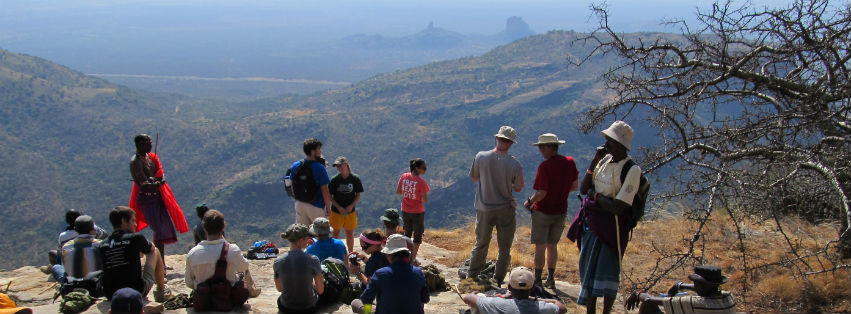
Environmental Justice and Sustainable Development in the Himalayas
Join us for a four-week, six-credit summer program in Nepal that offers an in-depth look at the country’s diverse environmental landscapes and rich cultural heritage. This program combines adventurous experiential learning with a human-environment analytical framework, focusing on real-world experiences with climate change, biodiversity conservation, and sustainable development in one of the world’s most rapidly changing mountain regions.
In Tsum, students will engage with the local Indigenous community to study the challenges, successes, and limitations of integrating traditional ecological knowledge into climate change adaptation and infrastructural development efforts. We will specifically examine the impacts of melting glaciers, rising temperatures, shifting tree lines and species habitats, and changing agricultural practices. Additionally, we will investigate how these environmental changes are connected to socio-cultural transformations in areas such as education, aging, and migration.
This course offers a field-based research experience focused on the human dimensions of climate and environmental change in the Nepal Himalayas. Students will explore themes of vulnerability, adaptation, and resilience to deepen their understanding of sustainable development. The program encourages openness to new ways of thinking and being in the world.
East Africa Field School - Swahili and Human-Environment Interactions
Designed to serve majors from different disciplines, JMU’s East Africa Field School incorporates extensive travel, homestays, lectures/class discussions, readings, and a variety of other assignments into studies of Swahili and human-environment interactions.
All students are required to take six credit hours of Swahili language at the appropriate level (beginner to advanced options are available) and six credit hours of “Human-Environment Interactions and Perspectives on Development” (abridged as “HEI”), totaling 12 credit hours. HEI provides breadth and depth of understanding of how “Kenya” and “Tanzania” came to be, and it connects with the Swahili courses.
For the HEI courses, we focus on the following interconnected topics: diversity of cultures in East Africa, impacts of colonialism, meanings of post-colonialism, education and ways of “knowing,” nationalism, development, dimensions of rural life, impacts of major cities, varied land uses and pressures on the land and water bodies, use and potential of renewables.

